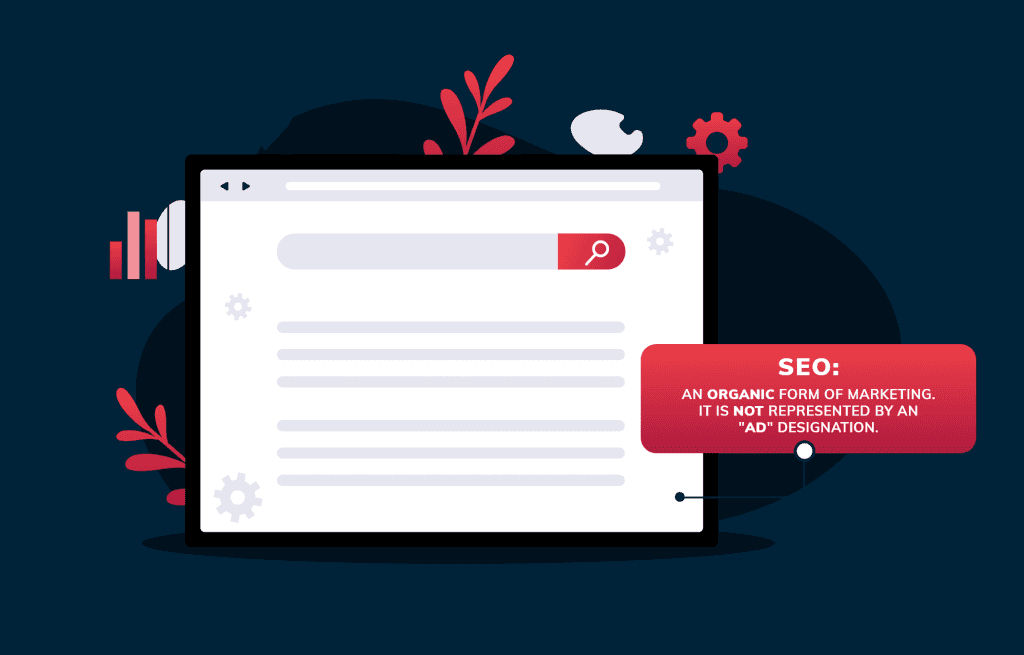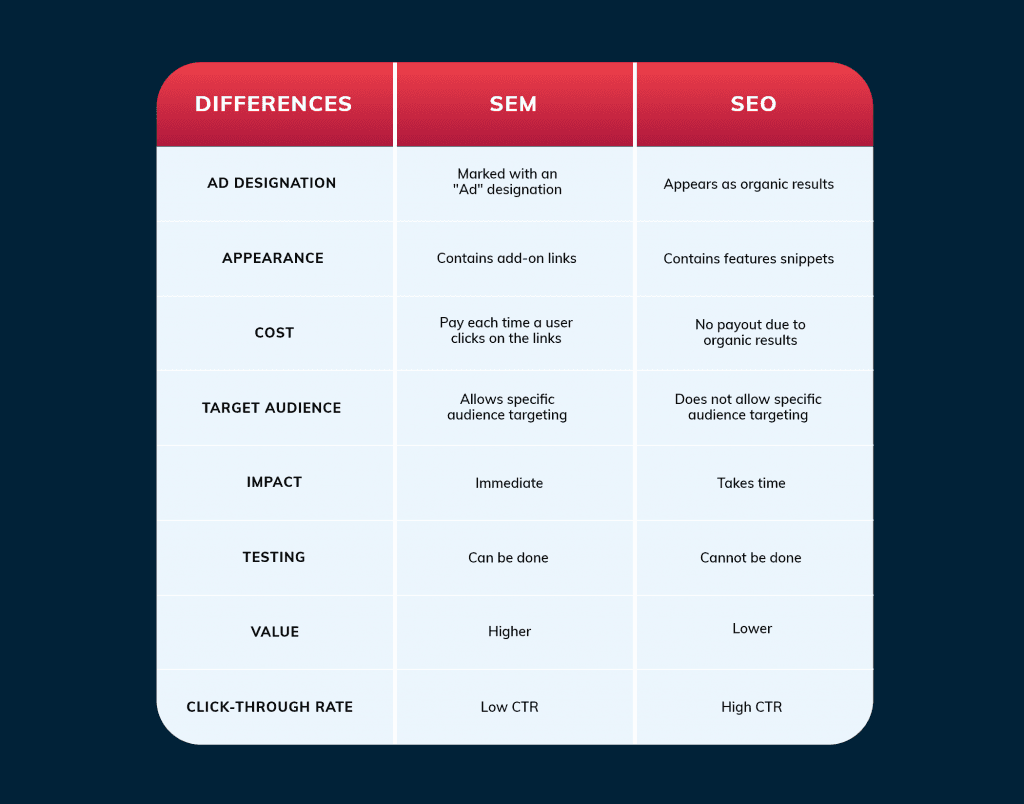Digital Marketing
SEM & SEO: A Comparison
By
MANASI BHASKAR
May 3, 2020
WHAT IS SEARCH ENGINE MARKETING (SEM)?
Search Engine Marketing is marketing that is paid to gain visibility on the Search Engine Page Results (SERPs). The process involves:
Setting up ads
Placement of the ads on the search engine
Allocating a budget to pay for the placement of the ad
Advertisers bid on keywords to ensure the ad appears when a product/service is searched for. Paid Ads look like search ads but include an “Ad” Designation.

SEM is often referred to as Paid Search or Pay – Per – Click Marketing (PPC).
Google Ads or Google Adwords (formerly) is the search provider most used for this type of marketing. The process begins with keyword research, campaigns are then created to target the best keywords to use. When a user conducts a search using those keywords, custom ads appear on the top and bottom of the SERPs. So, the brand pays when a user clicks on the ad.
WHAT IS SEARCH ENGINE OPTIMISATION (SEO)?
Search Engine Optimization is the type of organic Digital Marketing that aims to gain visibility on Search Engine Page Results (SERPs). This type of marketing does not require brands to pay for placement of their ads on SERPs. Instead, it uses some techniques to let the page appear on the search results because it is valuable and authentic.

There are various techniques through which SEO can be performed but those are often grouped into four categories:
On-Page SEO: This is done to allow the search engine to understand the content.
Off-Page SEO: This is done to build authority and trust.
Technical SEO: This is done to improve user experience and search crawlers.
Content Marketing: This is the most important factor in SEO, Google has released many updates to let websites owners trying to benefit their users through their Content be ranked on the first page of Google.
There are many SEO techniques and it depends on what’s your target audience and if you want to rank your website locally or internationally so, there are many strategies in local SEO & International SEO.
SEM vs. SEO: THE DIFFERENCE

– AD Designation: Search results through SEM appear differently than the ones through SEO. Since SEM ads are paid, they have an ad icon next to the placement whereas SEO results are organic and are not marked.
– Appearance: SEM search results contain ad extensions such as add on links, phone numbers, etc.Yet, those through SEO contain featured snippets such as a paragraph, list, table, etc.
–Cost: In SEM allows for paid placement of ads and the brand pays each time a user clicks on the ad. In SEO, a brand is never charged when the user clicks on the website as a result of organic strategies being used.
–Target Audience: Only SEM allows a brand to specify the target audience it needs for the campaign. Through SEM it can choose various demographics for the kind of audience it wishes to target. SEO does not allow a brand to choose the target audience.
– Impact: The impact of SEM strategies is immediate whereas the impact of SEO takes time. Through paid tactics that characterize SEM, it is easy to place the ad to the audience with a few clicks. SEO techniques are acquired through time which drive long-lasting results with least spend.
– Testing: Because SEM allows for paid ads to pause and start as per need, it is a great strategy for testing a brand’s ad. This allows a brand to:
Revise ad copy
Change landing page content
Target new audiences.
Such changes or testing cannot be implemented in SEO as it is time-consuming.
Know more about us
–Value: SEO adds more value over time in comparison to SEM. In the case of SEM, results appear as long as the ads are paid for, if the ads are turned off, the strategy is over. SEO strategy grows and multiples over time leaving long-lasting results.
– Click-Through Rate (CTR): SEO has a higher CTR in comparison to SEM. The first few organic results on the search page typically have the highest CTRs. So, if a brand can get to the top through organic strategies, it is likely to outperform SEM ads. However, if the brand appears on the second result page or lower, a brand is likely to do better with SEM ads.
On comparing the benefits of SEO and SEM, a brand can opt for the right strategy for its marketing activities. Researching a brand’s website and data will help a brand understand which type of marketing strategy is best for their business.
If the goal is to get results quickly, then SEM serves the purpose. But, if the goal is to rank organically with a minimum spend, SEO would be the right strategy. So, it comes down to what the objective of the campaign or the brand is. If you’re a website owner and you need to get sales quickly, you can start with SEM and for long term profit, you need to depend on SEO.
To know more checkout our Digital Marketing Services.





